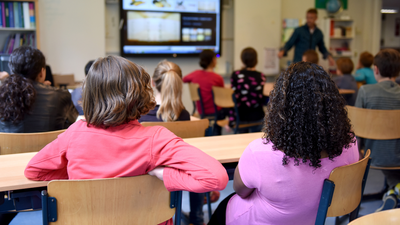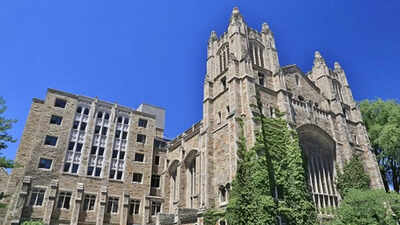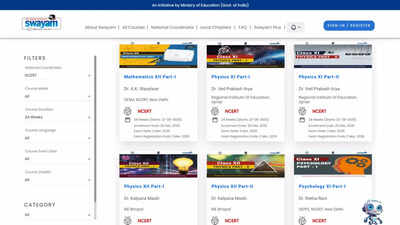The great American education shift: How the school choice movement is redefining who decides where children learn

The battle over who decides where and how American children learn has intensified into one of the most defining education debates of this decade. The school choice movement, once a fringe philosophy promoted by libertarian economists, has now become a political and cultural force reshaping the K-12 landscape.According to parents, educators, and policymakers who spoke to ABC News, families across the United States are increasingly seeking control over their children’s education, buoyed by the belief that public funding should follow the student, not the system.At its core, as defined by EdChoice, a nonpartisan nonprofit advocating for parental control in education, school choice “allows public education funds to follow students to the schools or learning environments families choose.” From charter schools to microschools, homeschooling collectives to AI-driven classrooms, the idea of “choice” has transcended policy to become a rallying cry for frustrated parents seeking flexibility and relevance in learning.
The federal push: Policy meets politics
At the national level, Republican Sen. Bill Cassidy, who chairs the Senate Health, Education, Labor, and Pensions Committee, has become one of the most vocal proponents of school choice. Cassidy’s recently signed model, included within President Donald Trump’s omnibus education bill, urges governors to opt into a new system that rewards charitable donations toward student scholarships.Starting in 2027, this provision will offer a permanent, dollar-for-dollar federal tax credit, up to $1,700 for individuals, to incentivize donations to nonprofit scholarship-granting organizations.Critics, however, have warned that such measures could drain resources from traditional public schools. Public education advocates argue that diverting funds risks deepening inequities between districts. Yet policymakers backing the initiative insist it does the opposite, offering opportunities to low- and middle-income families who previously had none.
Educational freedom or fragmentation?
Education Secretary Linda McMahon has aligned herself closely with the Trump administration’s call for “educational freedom,” emphasizing parental control as the cornerstone of reform.“We’re not dismantling public education,” McMahon told reporters earlier this year. “We’re modernizing it, by giving parents and students the freedom to find what works for them.”In Fiscal Year 2025, the administration allocated a record $500 million to the federal Charter School Program, marking one of the largest such expansions in history as reported by ABC News.According to the National Center for Education Statistics (NCES), charter schools are publicly funded but operate under legislative contracts, or “charters,” that free them from many traditional district regulations. This flexibility, proponents argue, allows innovation and accountability in ways that traditional bureaucracies often cannot.
Charters rising: The Louisiana experiment
Few places illustrate the school choice revolution as vividly as New Orleans, Louisiana, a city where charter schools now dominate nearly the entire public system.After Hurricane Katrina decimated local infrastructure in 2005, the city rebuilt its education system through charters. Nearly two decades later, the results are mixed but notable. George Washington Carver High School, one of New Orleans’ most established institutions, ranked No. 1 in academic growth in the 2023–24 school year, according to the Louisiana Department of Education.
From homeschooling to AI: The new frontiers of learning
Beyond charter expansion, the school choice movement has inspired an explosion of alternative education models. Families disillusioned with traditional classrooms are turning to homeschooling, microschools, and even AI-driven instruction.Microschools, small, community-based learning pods, have gained traction as parents seek more personalized instruction. The National Microschooling Center describes them as “shared learning environments” where small groups of families pool resources to create tailored educational experiences.One of the most striking examples is the Alpha School, founded by MacKenzie Price roughly a decade ago after her daughters complained of boredom in traditional classrooms. Alpha’s model integrates two hours of AI-enhanced instruction daily, followed by student-driven exploration and life skill learning.Instead of teachers, Alpha employs “guides” who oversee student progress but allow artificial intelligence to deliver instruction. It’s a radical reimagining of schooling, one that blurs the line between education and innovation.
The choice divide: Opportunity or inequality?
While advocates frame school choice as empowerment, critics view it as a potential threat to public education’s egalitarian roots. Teachers’ unions argue that siphoning public funds toward private and charter schools could exacerbate inequality, especially in under-resourced districts.But for families who have long felt trapped in failing systems, the freedom to choose represents not division, but dignity.As the US Department of Education recalibrates its role under a philosophy of decentralization, one question looms large: Is school choice the next evolution of American education, or the beginning of its fragmentation?In an era defined by personalization and technological disruption, the answer may depend less on ideology and more on whether the system, finally, can learn to adapt.






